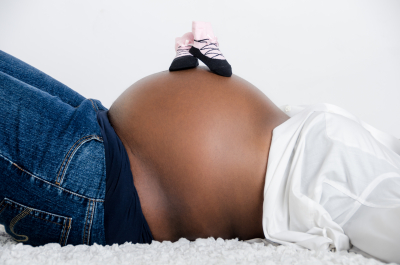Dallas sickle cell organization is dedicated to providing reproductive information, resources and financial support to sickle cell disease warriors and sickle cell trait carriers whose conditions pose health risks to their unborn child, pregnancy or health and experience difficulties with child bearing as a result of sickle cell disease and sickle cell trait.

Pregnant women who have sickle cell disease are at greater risk for problems. They should always see an obstetrician, or OB, who has experience with patients who have sickle cell disease and with high-risk pregnancies and deliveries. The obstetrician should work with a hematologist or primary medical doctor who is well informed about sickle cell disease and its complications. Pregnant women who have sickle cell disease need more frequent medical visits so that their doctors can follow them closely. The doctor may prescribe certain vitamins and will be careful to prescribe pain medicines that are safe for the baby.
Prenatal tests exist as well, which allow people to tell if their baby has SCD even before it is born.
If planning to have a baby Sickle cell disease warriors and sickle cell trait carriers should:
- Talk to your health care team pre pregnancy, during pregnancy and after pregnancy , ask them to help you find a gene counselor or fertility specialist who can talk to you about your options.
- Set up an appointment with your gynecologist or gene counselor to discuss your fertility concerns or questions.
- Ask for a referral to a fertility clinic or specialist for expert help.
- A pregnant woman who has sickle cell disease may need to have one or more blood transfusions during her pregnancy to treat complications, such as worsening anemia or an increased number of pain or acute chest syndrome events.
- Pregnant women should NOT use hydroxyurea.
What You Should Know About Sickle Cell Disease and Pregnancy
People who do not know whether they make sickle hemoglobin or another abnormal hemoglobin, such as SC, Sβ thalassemia, and SE, can find out by having their blood tested. This way, they can learn whether they carry a gene—or have the trait—for an abnormal hemoglobin that they could pass on to a child.
When each parent has this information, he or she can be better informed about the chances of having a child with some type of sickle cell disease, such as hemoglobin SS, SC, Sβ thalassemia, or others.
Does Someone With Sickle Cell Disease Or Sickle Cell Trait Need To See A Genetic Counselor?
- The best way to find out if and how SCD runs in someone’s family is for that person to see a genetic counselor.
- Couples who are planning to have children and know that they are at risk of having a child with sickle cell disease should meet with a genetic counselor.
- A genetic counselor can answer questions about pregnancy risks and explain the choices that are available to ensure safe pregnancies and having healthy babies.
- Genetic counselors have experience with genetic blood disorders. They also specialize in prenatal genetic counseling.
- What Should Someone With Sickle Cell Trait Or Sickle Cell Disease Do If He Or She Is Planning To Have A Baby?
- It is best for a person with sickle cell disease (SCD) or sickle cell trait.(SCT) to learn all he or she can about SCD before deciding to have children.
- A woman and her partner should get tested for SCT if they are planning to have a baby.
- Testing is available at most hospitals or medical centers, from SCD community-based organizations, or at local health departments.
- If a woman or her partner has SCT, a genetic counselor can provide additional information and further discuss the risks to their children.
Will Someone With Sickle Cell Trait Or Sickle Cell Disease Have A Baby With Sickle Cell Disease Or Sickle Cell Trait?

- During pregnancy, prenatal testing can be done to find out if a baby will have SCD, SCT, or neither one.
- The prenatal tests chorionic villus sampling (CVS) and amniocentesis often are used to find out if the baby will have the disease or carry the trait.
- Someone with sickle cell trait has a 50% chance of having a baby with sickle cell disease if both parents have the hemoglobin S trait and do not take preventative measures prior to getting pregnant or during pregnancy.
- Someone with sickle cell disease will have a baby with sickle cell disease if both parents have the hemoglobin S trait and do not take preventative measures prior to getting pregnant or during pregnancy.
Can Women With Sickle Cell Disease Have A Healthy Pregnancy?
Yes, with early prenatal care and careful monitoring throughout the pregnancy, a woman with SCD can have a healthy pregnancy. However, women with SCD are more likely to have problems during pregnancy that can affect their health and that of their unborn baby. Therefore, they should be seen often by their obstetrician, hematologist, or primary care provider.
- During pregnancy, SCD can become more severe and pain episodes can occur more frequently.
- A pregnant woman with SCD is at a higher risk of preterm labor and of having a low birth weight baby.
- Women who are pregnant should receive extra care and attention to find and treat problems before they arise.
These tests usually are conducted after the second month of pregnancy.
Can Women With Sickle Cell Trait Have A Healthy Pregnancy?
- Women who have SCT also can have a healthy pregnancy.
- Pregnant women with SCT also should be monitored by their obstetrician or primary care provider for the same health complications as for all pregnant women.
The following resources might also be helpful in understanding genetics:
- Genetics Home Referenceghr.nlm.nih.gov
- Frequently Asked Questions About Genetic Testingwww.genome.gov
- Talking Glossary of Genetic Termswww.genome.gov
- Knowing is Not Enough—Act on Your Family Health Historywww.hhs.gov
- SCD Factsheet & SCD Pregnancywww.cdc.gov






